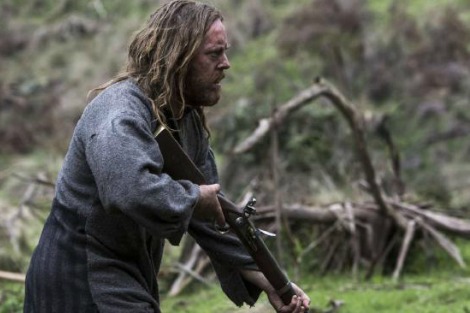At the first major policy announcement of his tenure, Prime Minister Malcolm Turnbull’s rhetoric echoed that of John Howard: violence against women, he said, needs to be seen as ‘unAustralian’.
But Australianess is a fluid concept that means different things to different people — for example, the republican Turnbull’s conception of it is fundamentally different to the constitutional monarchist Howard’s.
This suggests that one’s sense of what it means to be Australian entails selecting only certain elements of our past. Often, it means taking the good and ignoring the bad.
For example, there is little acknowledgment from politicians of both major parties of the lived-with consequences of British imperialism. If we were honest about the values that define us, we would talk about dispossession, racism and genocidal violence. Without these elements, modern Australia would be a very different place.
And ironically, in light of the Prime Minister’s words, it was often Aboriginal women who suffered the most. According to historian Dr Nicholas Clements, much of the early Aboriginal resistance was in response to widespread and frequent kidnapping, rape and murder of Indigenous women and girls.
Recently this was dramatised in the ABC’s adaptation of Kate Grenville’s novel, The Secret River. Smasher Sullivan (played by Tim Minchin, pictured) is a murderous racist who keeps Aboriginal women as sex slaves, while killing any other men, women or children who wander onto his property.
He takes an even more sadistic view of things than Anthony Trollope, who infamously wrote that ‘their doom is to be exterminated; and the sooner their doom is accomplished — so that there be no cruelty — the better it will be for civilisation’; Sullivan revels in the cruelty.
Sexual violence against women was part of the colonial experience for the Indigenous population. Yet, there’s been no apology for that. No reparations have been paid.
One assumes that this doesn’t figure in Howard or Turnbull’s sense of what it means to be Australian. But when a culture refuses to acknowledge its past, it risks making the same mistakes again.
One of the things about colonial violence is that it’s systemic — it may be carried out by individuals like Sullivan, but the imprimatur is top-down. Violence is an inevitable by-product of the original act.
The contemporary manifestation of this is Australia’s Border Force. The government has taken a military response to a humanitarian problem and continues to hold refugees in squalid conditions where they risk being assaulted or killed as a deterrent to others thinking of making the journey.
In this sense, the ongoing violence committed against refugees only bolsters the government’s ‘stop the boats’ policy by ensuring the deterrent is even greater. Violence in many forms — boat turn-backs, indefinite detention, force-feeding, water-boarding, rape and murder — is the means to an ends.
The chilling audio of the emergency phone call from a young Somali woman who’d just been raped on Nauru should not be heard in isolation. Hers is simply the plea that has been recorded. The children who have been sexually assaulted on Nauru — and there’s been 67 allegations — remain voiceless.
These are not random acts of violence. Sexual violence is the inevitable consequence of Australian government policy.
To borrow a line from Thomas Paine: ‘The defect lies in the system. The foundation and the superstructure of the government is bad.’
The foundation of modern Australia was built on violence against Aboriginals. The ‘superstructure’ of government today continues to stand idly by while the asylum seekers it has a moral and legal obligation to protect are routinely assaulted.
Contrary to what Turnbull may say, violence against women is very much ‘Australian’.
It’s not enough to blame individuals. The institutional violence that has defined our past must be owned. And the rape and torture that characterises treatment of asylum seekers on Manus Island and Nauru must be stopped. Until then, the Prime Minister’s words are meaningless.
(This was originally published in Eureka Street on 12th October, 2015.)

